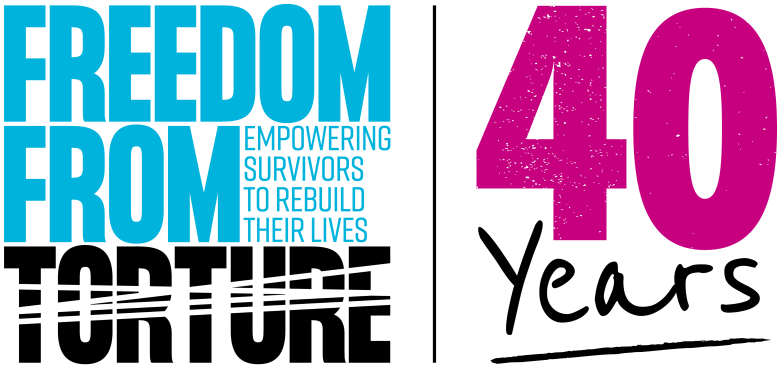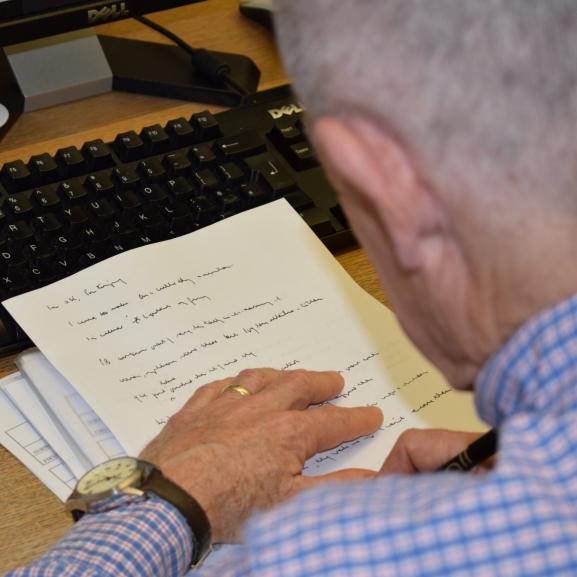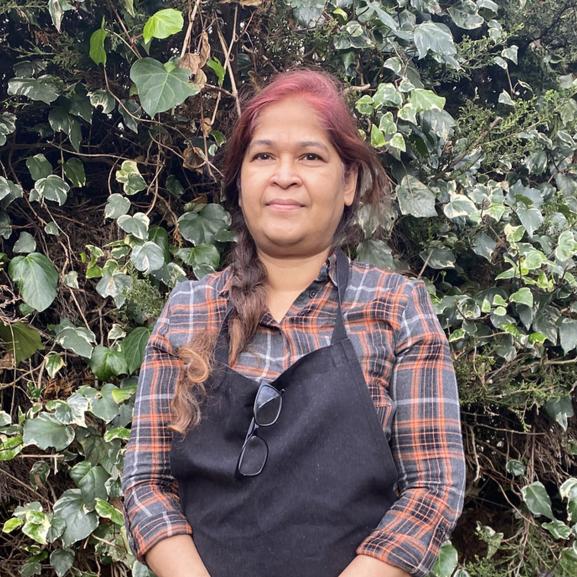The challenges and triumphs of working with young survivors of torture
Ann Salter is a Therapist at Freedom from Torture’s North-West centre in Manchester. In this interview, Ann shares the ups and downs of working with children and young people who have experienced torture.
How long have you worked at Freedom from Torture and what drew you to the organisation?
I’ve worked for Freedom from Torture for six and a half years as a therapist with children and young people.
I worked with separated young people in Manchester before I joined Freedom from Torture. I got to know the organisation as I actually started doing some training with the Freedom from Torture training team and worked on the Risk, Resilience and Rights program. So when I heard that there was a job coming up working with separated children and young people at Freedom from Torture, I just knew it was for me; it really suited my passion for human rights.
What does your typical day look like?
My days are varied. I see a number of clients, normally about four, but sometimes up to six if there is staff sickness or holidays. We also sometimes phone clients to check in, especially if something urgent is looming for them, like a Home Office interview. We work together as a team and keep an eye on each other’s clients when one of us is away.
I supervise volunteers at the centre as well and I do external supervision for therapists at an organisation in Liverpool that focuses on child refugees who have experienced or witnessed torture. Having good relationships with other organisations is so important. It can be difficult for young people in Liverpool to reach us in Manchester and vice versa, so being able to get people seen by a similar service that may be more convenient for them to reach is invaluable.
What is the biggest challenge for young people who have experienced or witnessed torture?
For young people, one of the big things for them is the separation from their families. Most don’t know whether their family members are even alive. In psychological therapy, this is what we call an ambiguous loss: a loss that leaves people searching for answers and full of uncertainty. It delays the grieving process and leaves many of these young people without closure, making it so hard to move on. It can cause feelings of loss that are debilitating and can make it difficult for people to move forward. We call this complicated grief.
Added to this, many don’t know whether they will actually be able to build a life in the UK. Children and young people face a really difficult time. But that is why we are here, to help them through it.
For young people, one of the big things for them is the separation from their families. Most don’t know whether their family members are even alive. In psychological therapy, this is what we call an ambiguous loss: a loss that leaves people searching for answers and full of uncertainty.
How do you help young people overcome torture?
There are three phases of working with complex trauma. First, we stabilise and help them feel safe right now, in the present. Then we deal with the trauma in the past, and then we work on the future, rebuilding relationships and moving forward.
For children and young people to overcome torture we need to help them process what they’ve seen or experienced. The sand tray is a very well established technique in trying to do this. Here we invite the person to put objects in the sand and build a picture of their internal feelings; what is going on inside. Some people create shapes and symbols, others come up with more concrete memories, like a model of their village.
This trauma processing, the three phases, they don’t always happen separately when you’re working with loss and complicated grief.
When they can tell the story and are connected with what happens and with you as a therapist, you know you’re starting to make progress. Often it takes an awful lot of time for us to get there.
When do you start to see light through the cracks - that there are signs of moving forward?
When someone starts to be able to tell his or her story in a connected way. When someone is hyperaroused (a state of increased psychological and physiological tension), you often find they tell their story and it does not go anywhere. They may go around in circles repeating the same thing. Other times, they may be completely detached from this really awful situation or they may have flashbacks, meaning they go right back to the trauma.
When they can tell the story and are connected with what happens and with you as a therapist, you know you’re starting to make progress. Often it takes an awful lot of time for us to get there.
What’s the best part of the job?
Working with young people, when I see them finally start to build a life that is meaningful and fulfilling in some ways, it is hugely rewarding. For example, one boy was incredibly traumatised when I first met him; he spent a lot of time crying. He fled torture and his journey to find safety was really difficult; he had been through horrendous experiences along the way. He was only a young teenager when all this happened. But now, after a lot of work, he’s doing really well and doing well at college.
Many young people’s search for safety is very difficult. Many are detained and tortured in Libya. Many face police brutality in Greece, Bulgaria and Hungary. There are camps where children have to sleep in the same space as adults and some have seen suicides of other people. Even getting food can be difficult, they’d often be the last and there wouldn’t be much left when he got there. They are often hungry and unable to wash. This is compounded with the original torture and not having contact with family or even knowing if their family are safe. All these things are happening when they are still developing as a person.
Sometimes I struggle to understand how some of the children and young people survive the journey. And of course, many don’t.
Many young people’s search for safety is very difficult. Many are detained and tortured in Libya. Many face police brutality in Greece, Bulgaria and Hungary. There are camps where children have to sleep in the same space as adults and some have seen suicides of other people. Even getting food can be difficult...they are often hungry and unable to wash.
What’s the most challenging part of the job?
You want to help everyone. But we can’t. The demand is greater than the resources we have and that is really hard. It’s really difficult when we can't see young people because we don’t have the capacity.
Could you share a moment that you felt made everything worth it?
The other day, one of my clients said she is interested in doing an accountancy course and improving her training. That was a big moment. It meant that she was able to think outside the past and look to the future, moving forward on her own. It also showed she was thinking about what she really wanted to do not what was expected of her; everyone had thought of her as a health worker.
It’s hugely rewarding when you see somebody start to build a fulfilling and meaningful life.





